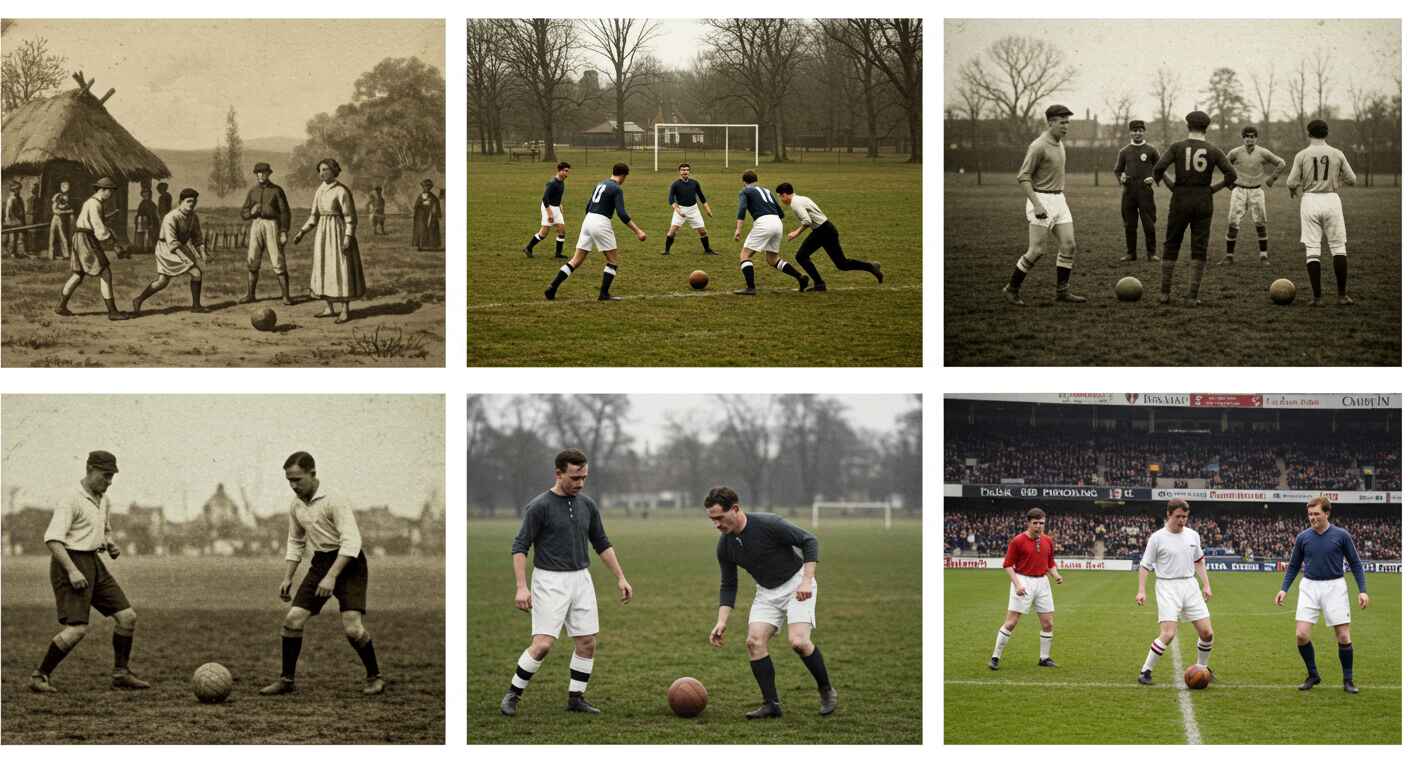Introduction
The history of football is a tale of passion, community, and global unity. What started as informal village matches centuries ago has evolved into the most-watched sport on the planet. With billions of fans and the world-famous FIFA World Cup, football has become more than just a game—it’s a global phenomenon.
Ancient Origins and Early Forms of Football
While modern football traces its roots to England, versions of the game existed in many ancient cultures.
-
In China, a game called Cuju involved kicking a leather ball into a net.
-
The Romans played Harpastum, a team sport involving a ball and physical play.
-
In medieval Europe, village football was chaotic and had few rules, often played on feast days with entire communities taking part.
These early games laid the groundwork for the modern sport we recognize today.
The Birth of Modern Football in England
By the 19th century, football had become a popular pastime in English schools and universities. However, the lack of consistent rules led to confusion during inter-school matches.
-
In 1863, the Football Association (FA) was formed in London, marking the official birth of association football (what most of the world now calls football).
-
Standardized rules were written, and the sport quickly spread to other parts of the UK and Europe.
Clubs started forming, leagues were organized, and the sport moved from muddy village greens to well-maintained stadiums.
The Global Spread of Football
As the British Empire expanded, so did football. British sailors, soldiers, and merchants introduced the game to ports and cities around the world.
-
In countries like Brazil, Argentina, and Italy, football quickly became a part of the national identity.
-
Local clubs sprang up, and passionate fan cultures formed, making football a key part of daily life.
By the early 20th century, international matches became common, and football was ready for a global stage.
The Rise of the FIFA World Cup
In 1930, FIFA organized the first-ever World Cup in Uruguay, bringing together teams from around the world. Since then, the tournament has grown into the biggest sporting event globally.
-
The World Cup is held every four years, featuring 32 teams (soon to be 48).
-
Legendary players like Pelé, Maradona, Zidane, and Messi have all made history in this tournament.
Today, the World Cup is more than a competition—it’s a celebration of culture, unity, and the beautiful game.
Football Today: A Global Powerhouse
Football continues to evolve with technology, media, and globalization. The rise of women’s football, VAR, and e-sports versions like FIFA gaming leagues show how adaptable and inclusive the sport has become.
From dusty fields to dazzling stadiums, the history of football reflects human creativity, connection, and passion for play.
Conclusion
Understanding the history of football helps us appreciate its impact on societies, cultures, and individuals. From village kickabouts to the roar of World Cup crowds, football has always been more than just a sport—it’s a universal language that brings people together.
Learn more from the official

